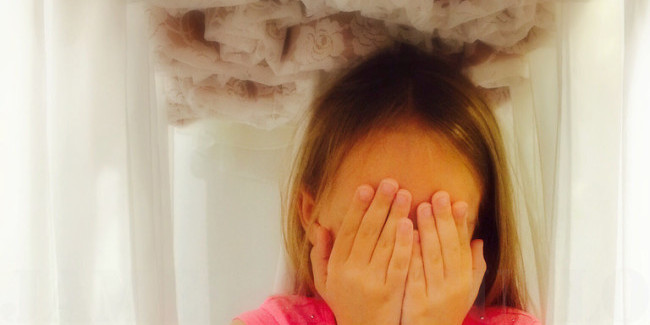 All those holiday parties, crowds and fanfare can be part of what makes it a holly jolly season – or they could be sheer agony for a child with social anxiety disorder. Social anxiety disorder is marked by extreme self-consciousness in even the most ordinary of social encounters, and many holiday get-togethers and galas can be far above and beyond the ordinary.
All those holiday parties, crowds and fanfare can be part of what makes it a holly jolly season – or they could be sheer agony for a child with social anxiety disorder. Social anxiety disorder is marked by extreme self-consciousness in even the most ordinary of social encounters, and many holiday get-togethers and galas can be far above and beyond the ordinary.
If your anxious child suffers from social anxiety disorder, you can help him or her get through the holidays with a few helpful hints.
Understand What Your Anxious Child is Going Through
In addition to an extreme sense of self-consciousness, children with social anxiety disorder may experience:
- Fear of embarrassment or ridicule, or doing something that results in either
- Heightened sense of being watched, scrutinized or judged
- Feelings that everyone is more able and competent than they are
- Fear of social situations and speaking to other people in public
Although the easiest response may be to let your anxious child stay home during all the holiday affairs, avoiding social events can eventually impact a child’s normal development as well as his or her quality of life.
Help Your Child Understand What He’s Going Through
Understanding an issue is one of the first steps toward conquering it, and you can help your anxious child understand social anxiety by explaining:
- Anxiety is a normal human reaction that helps the body prepare for danger
- Anxiety can become an issue if our bodies alert us to danger when there is no real danger
- Social anxiety can make us feel as if there is real danger in social situations
- Social situations can be a bit scary, making us feel like we’re “on stage” or might do something that makes us feel silly
- That’s pretty normal, too, and lots of people feel that way
- But they still go out and have fun
- The more you go out and have fun, the smaller and smaller the fears can become
Prep Your Anxious Child for Holiday Fanfare
Talking with your anxious child is good, and actually taking some action steps can be even better for paving the way for success in social situations.
Practice and role play: Set up a few simple social situations with your anxious child, then work together to practice how he or she will react in them.
Give your anxious child a focal point: Big parties can easily become overwhelming, but you can bring the situation back down to manageable levels by providing a focal point for your child. Instead of worrying about all the people in the room, help you child focus on one person to chat with or help out, a group of kids to play with, or other activity that draws the attention away from the overwhelming crowd.
Host a mini-party: Host a smaller get-together or two where you invite your child’s friends, families and other people your child knows well.
Teach relaxation strategies: From deep breathing to mindfulness techniques, help your child learn how to relax when needed – and in general.
One final tip is to praise your anxious child for a job well done for any amount of effort made. The first steps toward success may be simply showing up and sitting in the room without panicking, and those first steps can be huge steps that deserve applause.
SOURCES:
Photo Credit: James A. Vitullo Photography Flickr via Compfight cc





